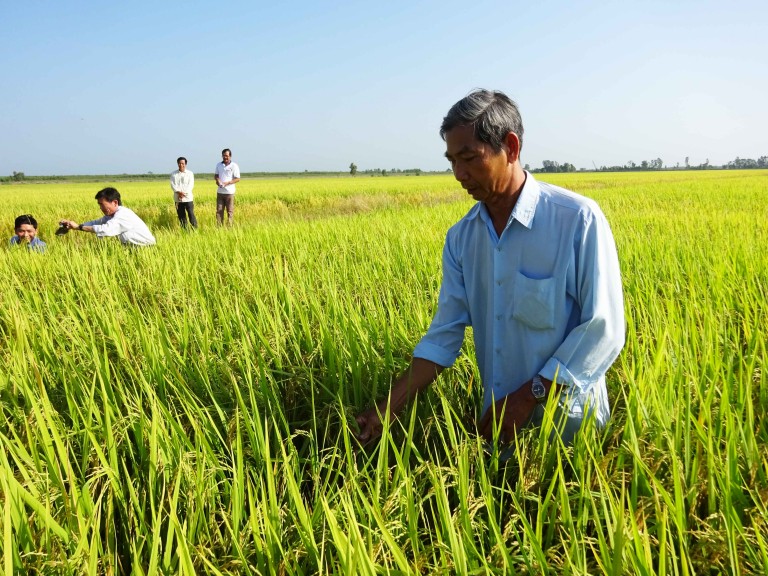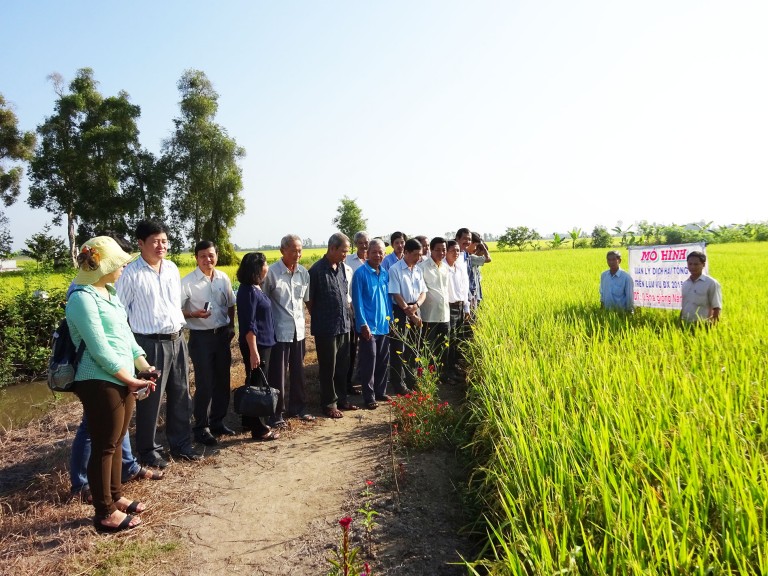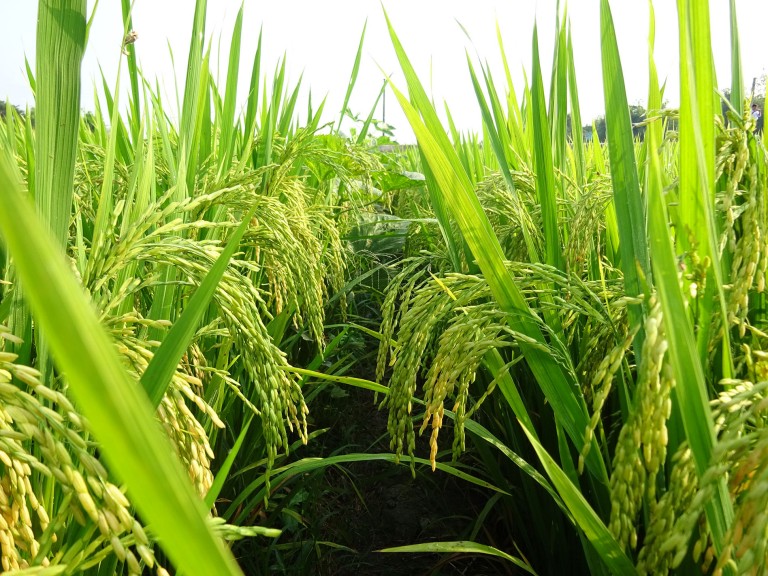
Writer: ASEAN Sustainable Agrifood Systems Team, Vietnam
GIZ / Croplife International’s Integrated Pest Management project: The success story in the first season, Dong Thap Province, Vietnam

Mr. Nguyen Van Yen, a rice farmer in Truong Xuan Village, Thap Muoi District, Dong Thap province in Vietnam, shared his experiences after attending a three-month training of GIZ/ Croplife International’s Integrated Pest Management (IPM) in the Winter/Spring Season 2015-2016.
“Pesticide application must be based on rice field ecology and pest injury levels,” said Mr. Van Yen. “During the training, the trainers taught us about the ecological cycles and how to make the exact field decisions at every rice stage. Because of this, I could save money during the recent production through reduced applications of pesticides and fungicides in my rice field.”

The “Integrated Pest Management” project under the implementations of the Sub Plant Protection Department and the Southern Regional Plant Protection Center of Plant Protection Department consists of two main activities. First is a Training of Trainers (ToT) and second is a Direct Farmer Training in the Winter Spring Season 2015-2016. The Trainings of the Trainers were earlier completed last year where 39 plant protection staffs got trained in IPM technical knowledge and application skills. These specialists will serve as Master Trainers for both the training of farmers and retailers during the next rice growing seasons. The projects strengthens knowledge and skills of government extension staffs, farmers and pesticide retailers on IPM, and help them to make better decisions for the responsible and safe use of pesticides.
The first Direct Farmer Training started in November 2015 to January 2016, for testing the training contents developed during the formation of Master Trainers. The training curriculum for farmers is based on 12 modules corresponding to the rice growth stages (Table 1). The first group of 210 farmers were trained in 12 weekly lessons during the rice cropping season.
Table 1: Farmer training modules were developed to be delivered in weekly lessons over the rice cropping season:
| No. | Module |
| 1 | Introduction: Rice Eco-Systems |
| 2 | Agricultural Inputs: their Responsible and Economic Use |
| 3 | Introduction to IPM and Plant Protection Measures at Seedling Stage |
| 4 | How to be an effective rice doctor? |
| 5 | Importance of Natural Enemies: IPM Decision Making during Tillering Stages |
| 6 | Understanding Pesticides and their Labels: A Buyer’s Guide |
| 7 | Responsible Pesticide Use: Maximum Tillering Stage |
| 8 | Pesticide Application and Calibration |
| 9 | Decision Making during Panicle Initiation to Flowering Stages |
| 10 | Pesticide Management |
| 11 | Decision Making during Milky to Ripening Stages: Avoiding Residues |
| 12 | Pesticide Transport, Storage, Handling, First Aid and Conclusion |
To support farmers’ training, one IPM demonstration field plot (1000 m2 to 5000 m2) with ecology engineering model, healthy seed, and nutrient and water management was also introduced to the farmers.

At the end of this three-month training, Mr. Van Yen reduced the times for pesticides spraying and found that he got higher net income in the Winter/Spring season 2015-2016. The calculation in Table 2 shows the results of his IPM demonstration field.
At the Farmer Field Day, he shared his opinions to other farmers, local authorities and associations: “I am very happy with the rice yield and input saving. I will continue to apply Integrated Pest Management model in the next season and transfer my knowledge and skills to other farmers”.
GIZ / Croplife International together with Plant Protection Department will continuously conduct the trainings to over 1,000 farmers at the Summer Autumn and the Autumn Winter seasons in 2016.
Table 2: Farm Benefit Analysis of IPM Demonstration Plot (Area: 1ha / crop cycle), Thap Muoi District, Dong Thap Province-Winter Spring Season 10/2015-1/2016
Source: Sub Plant Protection Department, Dong Thap, 1/2016
